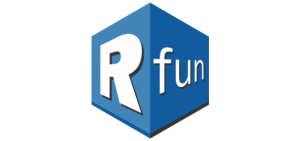New this fall…

You are invited to stop by the Edge Workshop Room on Mondays for a new Rfun program, the R Open Labs, 6-7pm, Sept. 16 through Oct. 28. No need to register although you are encouraged to double-check the R Open Labs schedule/hours. Bring your laptop!
This is your chance to polish R skills in a comfortable and supportive setting. If you’re a bit more advanced, come and help by demonstrating the supportive learning community that R is known for.
No Prerequisites, but please bring your laptop with R/RStudio installed. No skill level expected. Beginners, intermediate, and advanced are all welcome. One of the great characteristics of the R community is the supportive culture. While we hope you have attended our Intro to R workshop (or watched the video, or equivalent). This is an opportunity to learn more about R and to demystify some part of R that your find confusing.
FAQ
What are Open Labs
Open labs are semi-structured workshops designed to help you learn R. Each week brief instruction will be provided, followed by time to practice, work together, ask questions and get help. Participants can join the lab any time during the session, and are welcome to work on unrelated projects.
The Open Labs model was established by our colleagues at Columbia and adopted by UNC Chapel Hill. We’re giving this a try as well. Come help us define our direction and structure. Our goal is to connect researchers and foster a community for R users on campus.
How do I Get Started?
Attend an R Open Lab. Labs occur on Mondays, 6pm-7pm in the Edge Workshop Room in the Bostock Library. In our first meeting we will decide, as a group, which resource will guide us. We will pick one of the following resources…
- R for Data Science by Hadley Wickham & Garrett Grolemund (select chapters, workbook problems, and solutions)
- The RStudio interactive R Primers
- Advanced R by Hadley Wickham (select chapters and workbook problems)
- Or, the interactive dataquest.io learning series on R
Check our upcoming Monday schedule and feel free to RSVP. We will meet for 6 nearly consecutive Mondays during the fall semester.
Please bring a laptop with R and R Studio installed. If you have problems installing the software, we can assist you with installation as time allows. Since we’re just beginning with R Open Labs, we think there will be time for one-on-one attention as well through learning and community building.
How to install R and R Studio
If you are getting started with R and haven’t already installed anything, consider using using these installation instructions. Or simply skip the installation and use one of these free cloud environments:
- Duke’s virtual RStudio — requires your NetID login.
- RStudio Cloud
Begin Working in R
We’ll start at the beginning, however, R Open Labs recommends that you attend our Intro to R workshop or watch the recorded video. Being a beginner makes you part of our target audience so come ready to learn and ask questions. We also suggest working through materials from our other workshops, or any of the resource materials listed in the Attend an R Open Lab section (above). But don’t let lack of experience stop you from attending. The resources mentioned above will be the target of our learning and exploration.
Is R help available outside of Open Labs?
If you require one-on-one help with R outside of the Open Labs, in-person assistance is available from the Library’s Center for Data & Visualization Sciences, our Center’s Rfun workshops, or our walk-in consulting in the Brandaleone Data and Visualization Lab (floormap. 1st Floor Bostock Library).


